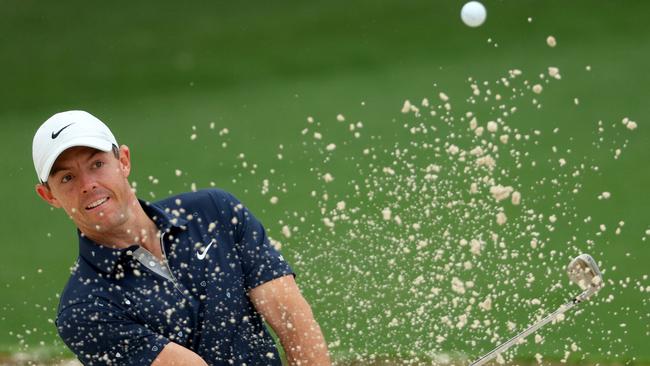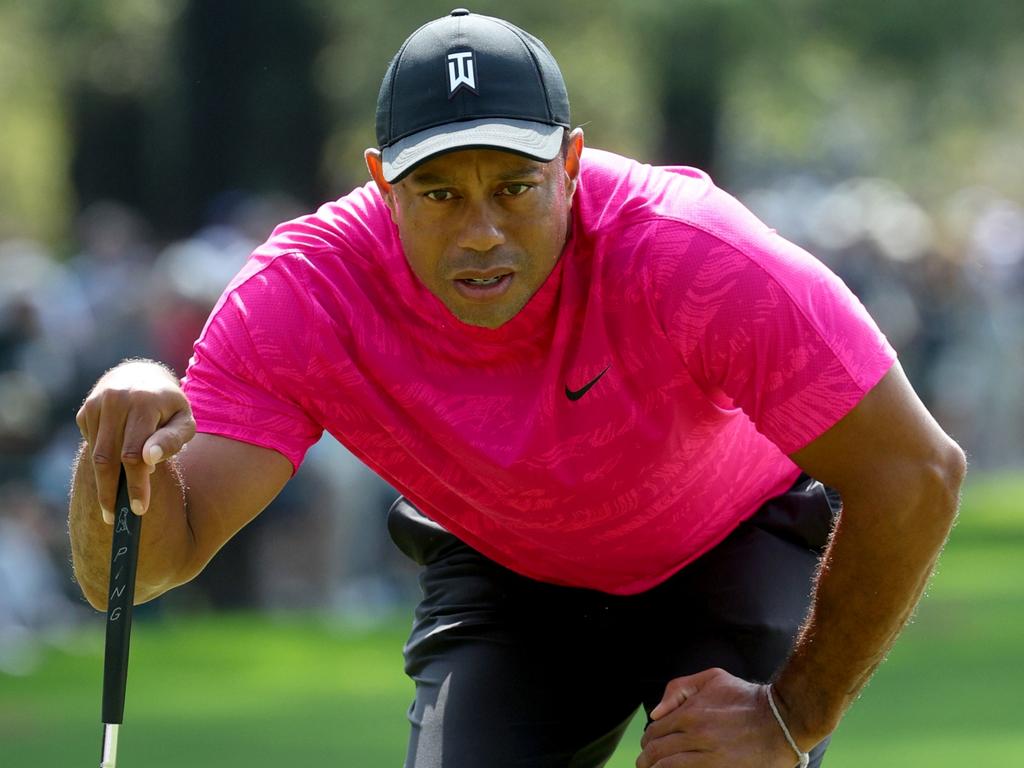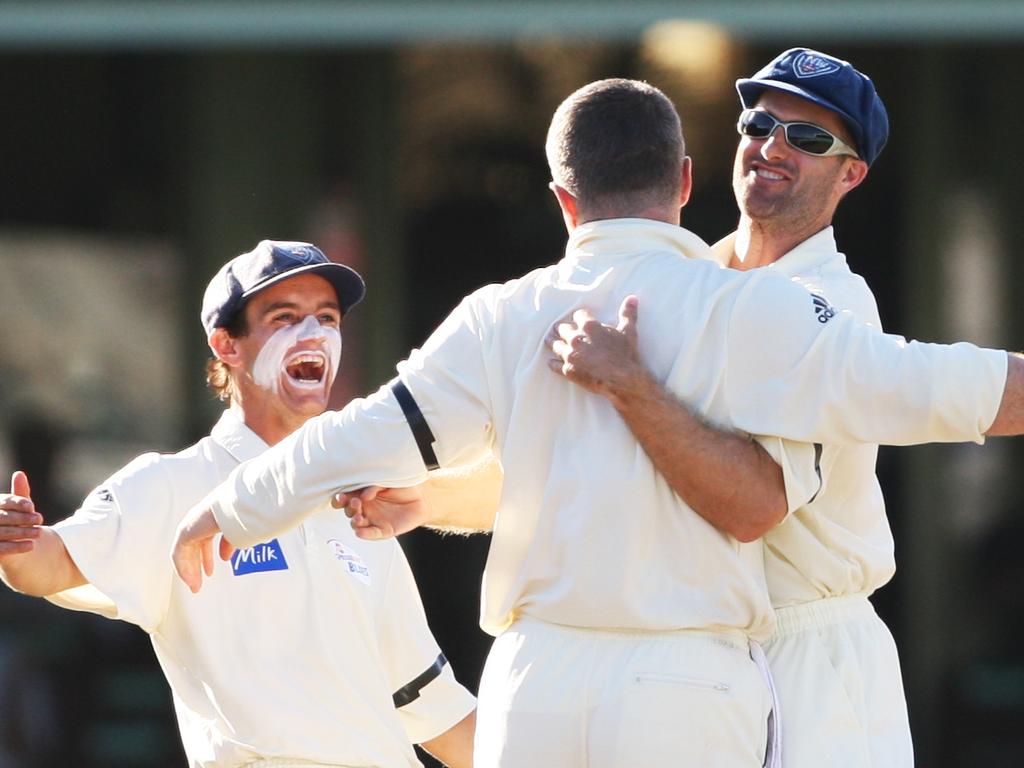Why has Rory McIlroy stopped winning majors?
The reasons behind the former world No 1’s failure to lift one of golf’s most coveted titles since 2014.

Rory McIlroy was visiting Tiger Woods’ Florida home when he saw four shelves on which the golfing icon had displayed the trophies for his 15 major championship victories. They were the only silverware on show; the only ones that count.
McIlroy thought it was cool, and authentic, given Woods had always been very clear that this was his measure of fulfilment. But what about McIlroy? Are we always going to judge him on whether the four majors on his shelf are enough?
A total of 27 majors have elapsed since a putt at Valhalla dropped in August 2014 and McIlroy joined Bobby Jones, Jack Nicklaus and Woods as the only golfers to have won four majors by the age of 25.
To have gone more than seven years without another is an unfathomably long gap for a player of such prodigious ability – and yet, at 32, McIlroy is younger than when Phil Mickelson won the first of his six.
What is success? Has he achieved it? Is he still chasing it with the same ardour? Knowing that McIlroy has wrestled with these questions himself is part of what makes him so interesting.
There are those who will ask why we are still focusing on McIlroy given other golfers have surged past him, but there remains a fascination with this open book of talent and vulnerabilities.
He can hardly be written off when he has won almost everything else these past seven years and remains in the world’s top 10.
On the No Laying Up podcast recorded at the end of last year, McIlroy talked of “cementing my legacy”. That can only mean wins in majors. McIlroy said himself that tied-sixth means little these days; certainly not in terms of money. His wealth grows daily, whether or not he is contending in big tournaments. McIlroy has made almost $US60m in prizemoney on the PGA Tour. Endorsements, including a $US100m 10-year deal with TaylorMade, have yielded more than double that. And yet those numbers only hint at his wealth.
In 2019 McIlroy founded Symphony Ventures, effectively the investment arm and venture capital operation of Rory McIlroy Inc.
“Rory hasn’t just set up the family for life, he’s set up the next five generations of McIlroys,” one golf source says. “He’s put himself in the Tiger league of riches.”
Woods is worth about $US900m, according to Forbes, which is a heck of a benchmark.
You can ask why McIlroy needs any more cash when he is already fabulously rich, but he thinks it is smart to make his money work for him.
He has a network of contacts not only in the game but in big business – family friends such as Jimmy Dunne, who is a heavyweight figure in US investment banking – and a team of advisers who sieve opportunities.
Money buys him freedom. Especially with a young family, McIlroy wants to remove all obligations for commercial shoots and other duties. He talks of running down his endorsements and having none at all in five years.
Symphony Ventures, which has made more than a dozen investments, including golf companies, insurance and healthcare, can make that possible while still enabling McIlroy to be a lucrative earner. A stake in Whoop, a US wearable technology company, is said to have already tripled in value, with the company now valued at more than $US3bn. McIlroy has an investment in Troon, which owns or leases more than 50 golf courses and is involved in hundreds more, and in Puttery, which combines miniature golf with bars and restaurants.
Of course, what McIlroy would give for a green jacket is inestimable.
Put to Bob Rotella, the renowned golf psychologist, that McIlroy could coast on all his wealth and this genial American coach issues a firm rebuttal.
Suggest that McIlroy may be in too much of a comfort zone as he sits in Florida with his wife, baby daughter and his parents living close by, and Rotella demurs.
“Let’s just say there is no problem with Rory wanting to win,” Rotella says.
“If someone thinks that because he is married, or has a child or has other business interests that’s interfering with golf, I can tell you he is getting his golf done.
“He’s putting the time in. He’s preparing. He wants it as badly as he’s ever done.”
Rotella has heard the questions about focus and distractions. When I was researching, someone who knows McIlroy well said that he thought one problem was that the golfer made himself so accessible – “a people pleaser,” as he admits himself – that all the chatter was bound to draw away from the single-minded pursuit of victory.
McIlroy is chairman of golf’s Player Advisory Council and, with that, has a role on the PGA Tour advisory board. Already one of the most high-profile players, he has become a spokesman at a critical time when there are arguments about Saudi Arabian breakaways, and how the game should adapt.
McIlroy has aired his own views about fewer 72-hole strokeplay grinds and more team golf to jazz up the sport. He was the most outspoken player about Mickelson’s “naive, selfish, egotistical, ignorant” support for Saudi plans. Does a tendency to say yes to media requests, and to speak your mind, have a drawback?
One of McIlroy’s charms has always been his accessibility. When I interviewed him after his 2011 meltdown at the Masters, he collected me and The Times photographer Marc Aspland from Belfast airport, drove us to his Holywood home and sat and answered any questions for a couple of hours with no minders, PRs or sponsor obligations.
It was the same interviewing him several years later. In top-level sport, this is highly unusual.
Do we want that to change? Should he put blinkers on? “He’s not a horse,” Rotella adds.
“I have heard people all the time saying, ‘Rory’s gotta be meaner. He’s gotta not answer questions.’ But being himself is being open and honest. That’s part of being Rory. It doesn’t put pressure on him or distract him. Rory’s just gotta be Rory.”
It is not always easy being yourself. Elite sport brings so much scrutiny. To stand still is to be left behind. But, in 2021, McIlroy lurched in the wrong direction.
To watch Bryson DeChambeau win the US Open by six shots at Winged Foot in September 2020, with his unfeasibly powerful hitting, was to feel like the game was changing.
McIlroy went on a search for more speed. He has since admitted that there was a touch of “ego” in that pursuit, especially as the one player whom all the others used to gawp at on the range whenever he pulled out his driver.
He took a break from his long-time coach Michael Bannon to work more closely with Pete Cowen, but his search for speed and distance introduced glitches, first to his swing and then to his confidence in 2021. He became lost in over-thinking, which, in golf, is always ruinous. By the time McIlroy reached the Ryder Cup in late September, his head was a mess. Padraig Harrington, Europe’s captain, left him out of a session on the Saturday morning; the first time McIlroy had been omitted since his debut.
“It wasn’t sitting him down, it was giving him a break,” Harrington said. Seeing McIlroy’s agonies, he felt he was doing him a favour.
By the time McIlroy had lost his third game, he felt “done with golf” for the year, but there proved to be some upside in hitting rock bottom.
A despairing McIlroy decided to forget everything he had been trying all year and just go out and play the game in front of him. He went out first for Europe on the Sunday and recorded a 3&2 win over Xander Schauffele.
“You could see he was a man on a mission,” Harrington says. “He just wanted the result. It didn’t matter how. It’s not a situation you can create. You have to be pushed into it by circumstances.”
A few weeks later, McIlroy won his first tournament of the year in Las Vegas.
“I realised I can do things like this,” McIlroy said after a victory that took him back into the world’s top 10.
Talking about McIlroy, Harrington made an interesting observation about the game changing around him – and alighted on how Woods used to say that he could win with his B game at his peak.
“And I often think about this,” Harrington added. “The minute you think that way about your B game, chances are your A game will turn up. It’s when you need your A game that it gets hard.”
And is that where McIlroy is at now? “From 2011 to 2014, Rory knew he was winning when he was playing well,” Harrington says. “Nobody could stay with him. Now there is the element that even if he plays well, what about the other guys?
“There are a lot of other guys now capable of playing like Rory on their good days. That makes it harder for Rory to be himself.”
Jordan Spieth’s arrival as the most exciting new player in golf was followed by Brooks Koepka muscling in with four majors in three years.
These days, Scottie Scheffler, the world No.1, is only 25, followed by Jon Rahm, 27, Collin Morikawa, 25, and Viktor Hovland, 24.
In the top 10, only Dustin Johnson, 37, is older than McIlroy. He is now the one trying to keep up and it has to be his A game to give himself a chance.
It’s not as though McIlroy can’t compete. Since Valhalla, he has been world No.1 (most recently in July 2020), won two FedEx Cups and 11 PGA Tour events.
It is in majors, with 13 top-10 finishes while chasing that elusive win, in which he seems to hit a hurdle, a block.
So what is the answer? “He only has one option – be himself and be patient,” Harrington says. “It’s not like he can try any harder. If that was the secret he would have done that all his life.”
Harrington says he keeps the faith, especially that McIlroy will win at Augusta. “The course isn’t an issue,” he says. “He’s played well there. Of all the majors you think he is going to win, it’s that one, the way he drives the ball.
“Rory is going to play a lot more Masters. He has to think not, ‘how do I win the next one?’ but, ‘can I win one of the next 10?’ ”
Ask Harrington if he thinks it has become too much of a pressure on McIlroy to complete this career grand slam and he responds: “It’s fascinating to watch.”
It feels typical of trying to pin down McIlroy’s prospects that I talked to Rotella moments after the pair had finished breakfast together, and the coach was buzzing about the golfer’s mindset.
“Since that Saturday night at the Ryder Cup, when he decided to go back to seeing shots and hitting shots and getting rid of the technical stuff, I have been just trying to keep it simple,” Rotella said.
“Rory is trying to simplify everything and he’s done a great job of that. His mind is nice and clear. He’s in a great place. He tells me he is enjoying it so much right now he wants to play until he’s 70.”
Then McIlroy, having changed his preparation for Augusta away from the WGC-Dell Match Play to compete in the Valero Texas Open, missed the cut in that event. His even-par first round included six birdies, as he drove well, but also six bogeys with some wayward approach shots. A one-over 73 on the second round, including a solitary birdie, hardly seemed to justify Rotella’s optimism as McIlroy made the early journey home.
At Augusta, it will be progress just to be in the mix on Sunday.
The closest McIlroy has come to winning a major since Valhalla was in Carnoustie at the 2018 Open when second behind Francesco Molinari – his only time within five shots in a major since his last victory. “I always seem to play well when people don’t give me a chance,” McIlroy said last week. But it raises the question of how he will manage if he does put himself in the hunt on Sunday.
His former agent Chubby Chandler bumped into McIlroy a few months ago. “We put this load of pressure on him, but I don’t understand all the conjecture about Rory. He has an unbelievably happy life. His wife and daughter, his mum and dad close by in Jupiter and a shit-load of cash in the bank – is it all about how many majors he wins?”
Good question. And McIlroy, more than any of us, still seems to be grappling with the answer.
The Times






To join the conversation, please log in. Don't have an account? Register
Join the conversation, you are commenting as Logout